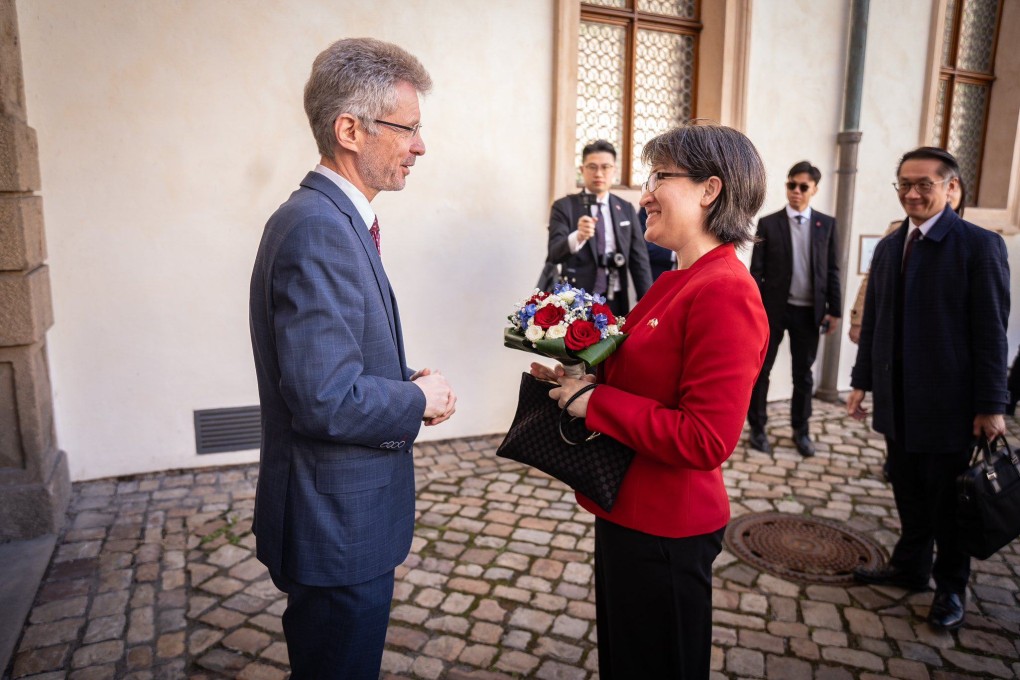Advertisement
Why is the Czech Republic targeting a Chinese diplomat and what does it have to do with Taiwan’s next vice-president?
- Taiwanese vice-president-elect Hsiao Bi-khim was reportedly tailed during her trip to Prague last month
- If true, the Chinese actions were not unreasonable, an analyst says
Reading Time:2 minutes
Why you can trust SCMP
4

Prague is using Taiwan as an excuse to sour relations with Beijing, an analyst said, amid claims that the island’s vice-president-elect was followed by a Chinese diplomat during a visit to the Czech capital last month.
Focus Taiwan, the English news portal of Taiwan’s semi-official Central News Agency, reported on Sunday that Czech authorities were investigating a report that a Chinese diplomat was stopped by police while following Hsiao Bi-khim’s motorcade.
The authorities summoned Chinese ambassador Feng Biao and were considering listing the diplomat at the centre of the allegations as persona non grata, which could result in the diplomat’s expulsion from the Czech Republic.
Hsiao was in Prague to speak at a seminar.
The Czech Republic does not recognise Taiwan as a country but it has fostered unofficial ties with the island.
A 150-person delegation led by the speaker of the lower chamber of the Czech parliament, Marketa Pekarova Adamova, went to Taipei in March last year and the Czech Republic and Taiwan host reciprocal economic and cultural offices.
Advertisement